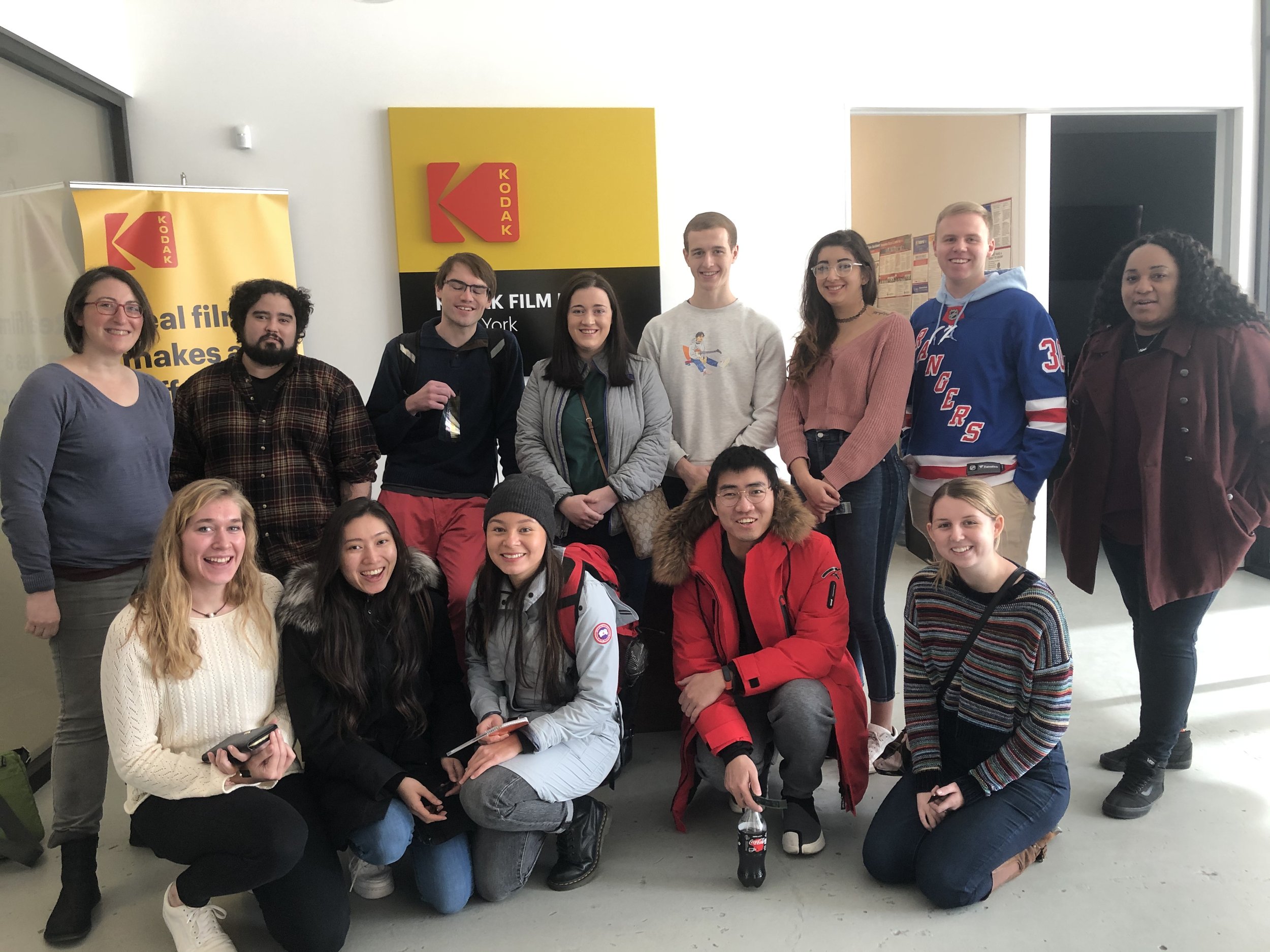post production practices

Explore both the management and technical aspects of the Post Supervisor role on Film and Episodic TV projects. Planning, budgeting, and scheduling with studios and vendors will be examined. Workflows to be covered include: Dailies, Editorial, Conform, VFX, Animation, Titles, Color, Sound Mix/ADR/Foley, and Deliverables.
overview
This discussion-based class offers a wide survey of the post production industry through a series of presentations and conversations. Students will not be making a project in the course, but instead will learn about the post production industry’s past, present, and future through technology, innovation, diversity, equity, and business practices.
In discussions surrounding visual effects, students learn about all the ways that visual effects can be used in modern filmmaking including both 2D compositing and 3D work. There is also a heavy focus on the state of the industry in regards to ethics, the possibility of unionization, and workplace issues. After this, the course explores sound, beginning with basic conversations on acoustics and soundwaves before diving deeper into professional sound workflows, software, and techniques.
Next, the conversation turns to deliverable workflows and specs as well as various types of archiving. Then, the class covers motion graphics and titles and how they are incorporated into live action footage. Trailers and marketing are also discussed to showcase how distributors convince audiences to watch their films.
Additionally, students will gain experience with client management, project management, and are presented opportunities to network with some of the top post production professionals working today.
(3 credits) – TRF 445/645 (Fall Only)
assignments
articles
In order to make sure that class keeps up with the quickly-changing world of post production, there is a heavy focus on current events and trends in the industry. This is mainly done through the article assignment in which each student must choose one week to explore the latest innovations that could tie into the class material.
They must then choose two articles that they will further research and present to the class. These articles can involve technological advancements, shifts in workplace practices and diversity, significant business developments, or other relevant events.
These presentations must inform the rest of the class on the news and any necessary background information needed to understand the significance of the discussion. They must also be prepared to answer questions and lead discussion on the topic.
client emails
Many roles in post production require skilled communication with clients in order to be successful.
To prepare students for this, students in Post Production Practices must complete a client email assignment.
This task is completed over the course of a week where students play the part of a supervisor or producer working on a theoretical project. The professor acts as the client, and contacts them with possible problems that could happen in the real world. The students must do their best to solve these problems while maintaining professional email etiquette and prompt response times.
After the week, they have a better understanding of how to deal with difficult clients who may not have a full understanding of the complexities of post production.
post supervision
In order to gain hands-on experience as a supervisor, the Post Production Practices class is introduced to the Visual Effects for Live Action course as they are beginning their final projects.
Each student from Post Production Practices is assigned the role of post supervisor for one of the VFX projects and must work with the other students in order to help them complete their work on-time and with consistent quality.
To begin, they meet with the VFX student to plan out the overall post schedule and design the workflows for camera, sound, editing, visual effects, color, and more so that there is a clear outline of all of the software and steps that are going to be involved.
They must follow along during the entire course of the project from writing to the final screening, checking in and making sure that things are going smoothly and any unexpected issues are solved quickly.
nyc / virtual trip
Once students have studied the basic departments within post production, they are given an opportunity to learn more from people performing this industry work in the real world. In some cases, this is done through a class trip to New York City where the class visits a handful of post production companies to see their facilities and speak with current employees about their work and responsibilities.
If this trip is not possible, it is supplemented with a virtual trip where students chat with people around the world about the topics that most interest them. Either way, each student is given one person and industry topic that they must lead the conversation on and prepare a presentation for afterwards.
This experience provides a great amount of supplemental information outside of the traditional class lectures but also serves as a networking opportunity for those interested in entering the post production industry.


